ASHEVILLE, N.C.— High school sophomore Nate Worley and his brother Tucker have been showing livestock for a long time. “Once they started walking, they started showing lambs,” says Sonia Worley, their mother.
On Oct. 11, Nate and his family were preparing to compete at the state fair in Raleigh, having brought along an ark’s worth of animals that included heifers, lambs, pigs and a steer. Nate has been visiting the fair since birth and has competed in other agriculture-related events with his school’s Future Farmers of America program as well as the Buncombe County 4-H program.
Participating in 4-H is a generational tradition for members of the Worley family — Nate’s brother, father and grandfather have all taken part the program in the past.
Activities galore
The 4-H program in Buncombe County is divided into multiple clubs, many of which have specific focuses. The county program as a whole organizes one-day events such as camps that highlight particular subjects like local foods and animal agriculture.
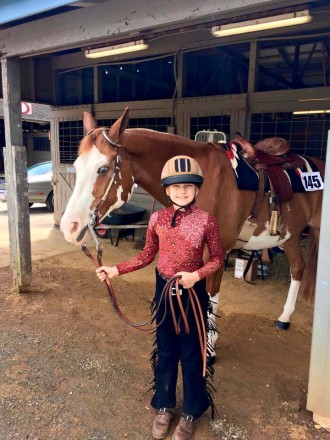
Jackie Gillespie leads the Sandy Mush 4-H club, which is the oldest 4-H club in Buncombe County. Of the 44 students enrolled in the club, five of them participate in either livestock judging or the Skillathon, a competition that, among other things, tests a team’s ability to identify certain breeds of cattle or cuts of meat and administer medicine to animals.
The livestock judging team organized through the Buncombe County 4-H program is open to 4-H members countywide, regardless of their club affiliation. Competitors judge four different species of animals: cattle, sheep, goats and hogs.
“When you go to judge a class of animals, you’ll have four animals in that class,” Gillespie says. “The judges have already predetermined how they judge those animals — 1, 2, 3 and 4. … So then when the kids go to do the contest, they get a set amount of time and they can look at those classes of animals and then they rank them how they see them.”
For some classes, the club members have to identify their reasoning behind their ranking, using a number of criteria to judge the merits of one animal over another. As an example, Gillespie says this can include the body structure of the livestock, which should betray no noticeable problems with the feet or legs.
During a July contest in Raleigh, the team competes against other clubs in the state. The state fair, also held in Raleigh, tends to be another big event for the livestock judging team. Members of the Sandy Mush club also show livestock, presenting everything from chickens and sheep to goats and pigs. “We pretty much hit all the animals,” Gillespie says.
Working with animals
Gillespie’s daughter, Jordan McAninch, is the president and oldest member of the Sandy Mush club. She is a sophomore at Haywood Community College and will age out of the program this year. McAninch has participated in livestock competitions for about 10 years, starting when she was 9 years old.
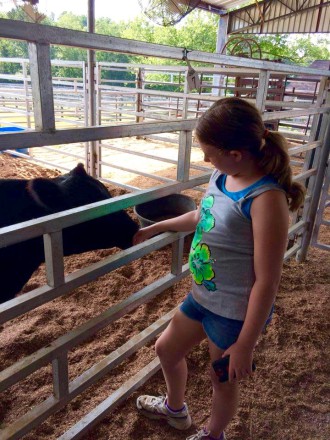
“I live on a farm, so I kind of grew up around it, and a lot of friends and family have done livestock judging and showing, and so I was kind of grandfathered into it,” she says.
McAninch shows cattle and was actually at the same competition in Raleigh that Nate attended in mid-October. McAninch uses the animals her family raises on their farm for livestock showing competitions, picking out calves from the pasture that she will then train. That’s when McAninch’s livestock judging experience becomes invaluable.
For feeder steers, which are put in a feedlot in order to prepare them for slaughtering, McAninch looks for animals with a hefty amount of meat and muscle. She takes a different approach when evaluating heifers, which are female cows that haven’t yet given birth to a calf.
“You want them deep-bodied and you want them to have good structure, which is the way they walk,” she says. In essence, their bodies need to have enough volume to carry a calf.
McAninch and her family start training those calves at the end of July, teaching them to lead with a halter. She feeds them twice a day and washes them two or three times a week. Once McAninch and her family arrive at the competition, they give the calves a haircut. “Clipping them just helps them look as good as they can in the show ring,” she says.
McAninch shows at the Haywood County Fair, the Mountain State Fair, the Madison County Fair and the State Fair in Raleigh, where she and her family won grand champion in the Pen of Three Feeder Calf category.
In preparation for competitions, Nate and McAninch both make an effort to make sure their animals aren’t startled by lights and crowds in the show pen. “We try to train them at home to ensure that they’ll do the best … but sometimes you get to the fair and they’ll forget everything they’ve learned,” McAninch says.
McAninch often prepares her calves for the stress of a competition by inviting all the 4-H members in the Sandy Mush club up to her family farm to spend time with the animals. “All that noise and stuff kind of gets the calves ready for the fair,” she says.
In order to combat stage fright, Nate tries to develop a relationship with his animals. “You just be around them more and get them used to being around you,” he says. “That way they’re more comfortable being around other people.”
Valuable experience
At the moment, Worley says her son wants to be an attorney when he grows up, an occupation that many people would argue has very little to do with showing livestock or judging them.
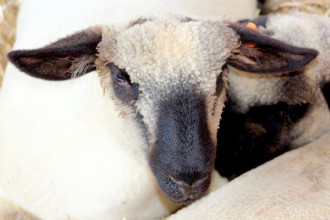
Nate, however, sees some overlap. “The skills that I have learned through the 4-H program have been about public speaking, hard work and working together in cooperative action, which is something you’ll need in any job or in any field,” he says.
Similarly, Gillespie believes McAninch has learned skills that could be helpful once she enters the workforce. Next fall, McAninch plans to transfer to Appalachian State University, where she will study elementary education. As the president of her 4-H club, she works with many small children, an experience that has had a major influence in her decision to become an elementary school teacher.
Holly Jordan, the 4-H extension agent for Buncombe County, also sees value in activities like livestock judging and livestock showing. “I think it’s a tool to teach the kids other skills, like responsibility and commitment,” she says.
Jordan has noticed that students tend to enjoy the shared camaraderie that’s produced as part of working together as a team more than anything else. “Even if there’s a contest, a competition or whatever, we really stress that it’s the experience,” she says. “We take them to Raleigh, which is a big city, and some of them have never been to a big city, so they get a lot of excitement out of that.”
Jordan says 4-H relies on volunteers to help coordinate many of its activities and clubs. Anyone interested in serving as a volunteer leader can contact her via email at holly_jordan@ncsu.edu. They can also call the Buncombe County Extension Office at 828-255-5522.
“People have the misconception that 4-H is just about agriculture,” Jordan says. “But we actually have a lot of programs that happen in the schools and in the cities.”

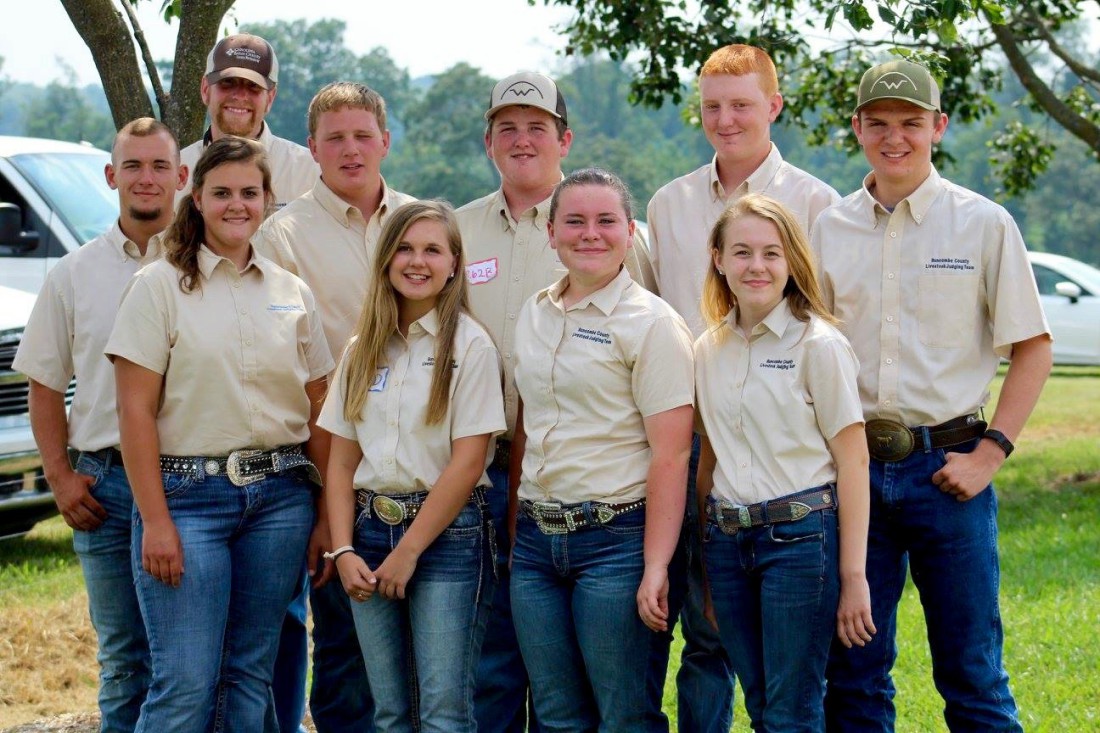

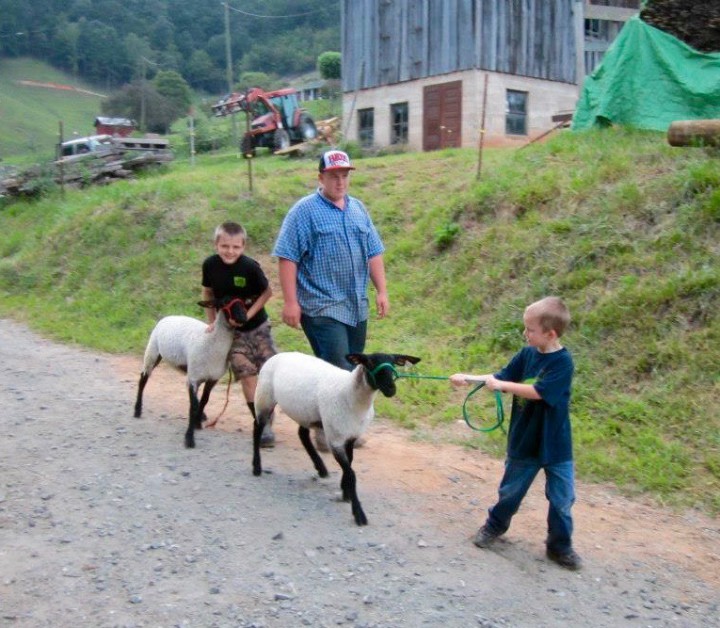

This year at the state fair in Raleigh another Sandy Mush 4-H member Zya Pegg showed the Reserve Champion Turkey